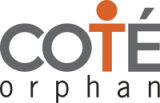
Children and elderly patients frequently have particular healthcare needs that aren't always met by prescription drugs. Even while the majority of drugs are produced in limited quantities and with set dosages, they don't always correspond to what young or elderly patients truly require. Compound drugs can provide vital support in this situation.
Pharmacists create customized prescription drugs depending on a given prescription. Depending on what each person needs, they can have their strength, formulation, or even flavor changed. This customisation can be more than beneficial for elderly and pediatric patients; in fact, it may be necessary to guarantee that medicine is administered safely and efficiently.
Children, especially infants and toddlers, often can’t swallow pills. They may also be sensitive to certain ingredients found in commercial medications, such as dyes, preservatives, or artificial flavors. In many cases, the available dosage strength is simply too high for a child. Through compounding, a pharmacist can prepare the same medication in a child-friendly liquid or cream with the right strength and without any unnecessary additives. It allows the treatment to fit the child, not the other way around.
Taste is another major factor in pediatric care. A child who refuses medicine because it tastes unpleasant may not get the full benefit of treatment. Compounding can turn a bitter medication into something more palatable without compromising effectiveness. For parents, this small change can significantly ease the stress of administering daily doses.
Geriatric patients, on the other hand, often deal with multiple health conditions and a long list of prescriptions. Swallowing difficulties, changes in digestion, or declining liver and kidney function can all affect how their bodies process medications. Standard tablets or capsules may not work as intended—or worse, may cause complications.
With compounding, medications can be reformulated into easier-to-swallow options, such as topical creams, lozenges, or liquids. For someone with arthritis who struggles with childproof caps or pill organizers, a simplified form can make a major difference in adherence and comfort.
Older adults may also need lower or more precise doses than what’s commercially available. A compounded medication allows their physician to prescribe exactly what their body needs, without relying on pill-splitting or partial dosing that might be inconsistent or unsafe.
Beyond dosage and form, compounded medications can also eliminate ingredients that geriatric patients may not tolerate well. Common culprits include lactose, gluten, and dyes. When a patient experiences side effects that aren’t tied to the active drug itself, it’s often these additives that are to blame.
The personalized nature of compounded medications supports the unique biological and lifestyle needs of these two age groups. It’s not about offering an alternative for the sake of convenience—it’s about improving treatment outcomes, reducing risks, and helping patients of all ages feel seen and supported in their care.
One example of innovation in this space can be found in how pharmacies like Texas Star Pharmacy are advancing the role of customized care. This recent article, https://www.abc4.com/business/press-releases/ein-presswire/768533569/jay-bhaumik-and-texas-star-pharmacy-to-showcase-innovation-at-longevityfest-2024/, further emphasizes how compounded medications are gaining momentum in both pediatric and geriatric settings.
Compound drugs are emerging as a reliable resource for both pharmacists and healthcare providers as the industry continues to shift toward more customized approaches. Knowing that these options are available can provide comfort and assurance that the best solution is achievable, even in situations where the conventional ones are insufficient, for families with young children and those looking after elderly loved ones.
